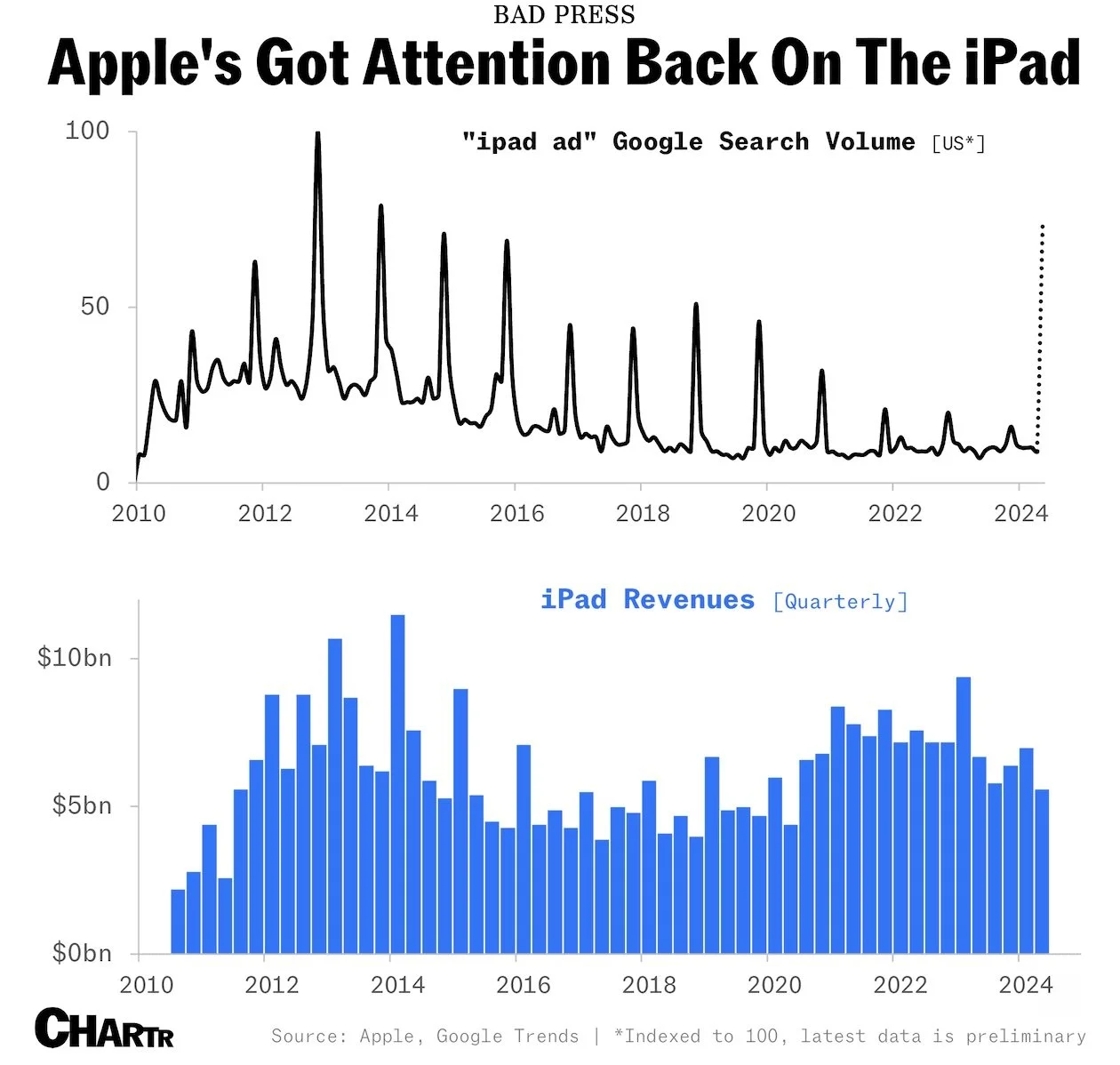Issue 194: The Debate Over Technology and Mental Health
Welcome to Backstory, a weekly newsletter turning global technology shifts into a three-minute read. This week, we’re thinking about mental health and technology.
THE BIG TAKE
The Debate Over Technology and Mental Health
For better or worse, technology is woven into virtually every aspect of our daily lives. But what does that mean for our children? How does technology affect developing brains and should we be concerned about over use? Jonathan Haidt, a social psychologist and professor, has ignited fresh debate on this topic with his new book The Anxious Generation, which critiques the impact of smartphones and social media on children's mental health. Haidt's extensive research suggests a direct link between these technologies and rising anxiety and depression among adolescents, particularly young girls. His book, topping bestseller lists in the United States and praised by figures like Oprah Winfrey, calls for collective parental action to delay children's access to smartphones and social media.
Room for debate. Haidt's arguments have sparked both support and criticism. While celebrities and politicians endorse his call for stricter control over children's tech use, some academics argue that Haidt's focus on social media might distract from other significant causes of mental health issues, such as economic hardship. Despite the pushback, the widespread concern about the mental health crisis in youth has kept Haidt's ideas at the forefront of discussions for the past month
Moving forward. Central to Haidt's thesis is the belief that modern technology, coupled with a decline in free play and an increase in overprotective parenting, is detrimental to children's development. This perspective opens a significant opportunity for smaller countries, such as the UAE, to innovate with research and new regulations to protect children. By investing in studies that explore the impact of screen time on youth and implementing policies that delay the introduction of smartphones and social media, these nations could set a global standard. Encouraging more unsupervised play and maintaining phone-free zones in schools could help foster resilience and problem-solving skills among children, ensuring a healthier, more balanced approach to technology. We have a duty to get it right for the next generation.
QUOTE OF THE WEEK
“Silence is difficult and arduous, it is not to be played with.”
- Richard Feynman, Theoretical physicist
This week, we are thinking about iPads. Apple unveiled new devices that bring a much needed refresh to the line up. But are they enough to get over the general tablet slump in the market?
SPOTTED ELSEWHERE
Big week for AI. Lots of exciting news from the forefront of consumer AI with major announcements from both OpenAI and Google this week. OpenAI unveiled its latest model, GPT-4O, promising advancements in natural language understanding and generation. They also demoed a new AI feature that is, well, inspired by the popular film “Her”. Meanwhile, Google introduced its new AI-driven search algorithm, enhancing search accuracy and personalizing results based on user behavior more effectively than ever before. These breakthroughs underscore a significant leap forward in AI capabilities, promising to reshape the landscape of technology and innovation but they might also kill the media business as we know it.
Technology and relationships: Ever thought about using popular technology tools to help with your personal relationships? In a fascinating twist on using modern technology, Ben Lang and his wife, Karen-Lynn Amouyal, have integrated Notion—a tool typically reserved for complex business projects—into their daily lives to enhance household and relationship management. As the New York Times explores, Lang's innovative use of Notion includes everything from grocery and to-do lists to a "date night" log and sections detailing their shared principles and learnings about each other. Despite the backlash on social media, this approach highlights a growing trend among tech-savvy individuals who apply corporate tools to personal life, seeking efficiency and harmony in their most meaningful relationships.




